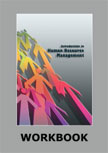IG Metall - A Trade Union in Crisis?
|
|
ICMR HOME | Case Studies Collection
Case Details:
Case Code : HROB084
Case Length : 16 Pages
Period : 1994-2006
Pub Date : 2006
Teaching Note : Available
Organization : IG Metall Trade Union
Industry : Diversified
Countries : Germany, Europe
To download IG Metall - A Trade Union in Crisis? case study
(Case Code: HROB084) click on the button below, and select the case from the list of available cases:

Price:
For delivery in electronic format: Rs. 400;
For delivery through courier (within India): Rs. 400 + Rs. 25 for Shipping & Handling Charges
» Human Resource and Organization Behavior Case Studies
» HRM Short Case Studies
» View Detailed Pricing Info
» How To Order This Case
» Business Case Studies
» Area Specific Case Studies
» Industry Wise Case Studies
» Company Wise Case Studies

Please note:
This case study was compiled from published sources, and is intended to be used as a basis for class discussion. It is not intended to illustrate either effective or ineffective handling of a management situation. Nor is it a primary information source.
Chat with us

Please leave your feedback

|
|




<< Previous
Introduction Contd...
|
In Germany, most negotiations for collective bargaining and other agreements are
negotiated between the trade unions and regional employer associations
representing the entire sector rather than with individual companies.
Earlier in January 2006, IG Metall had demanded a five percent increase in pay
as it felt that these companies were making huge profits. It said that the
increase in pay would help the members cope with the rising cost of living,
increase their purchasing power, and to withstand the increase in valued added
tax from 16 percent to 19 percent, which the German government proposed to
implement in 2007.
|

|
The agreement would also influence inflation and price stability in the
German economy, and have repercussions on the wider European economy.
Earlier, the European Central Bank7 (ECB) president, Jean-Claude Trichet,
warned German companies against allowing any pay increase. He said that if
the pay demand was met, the ECB would be forced to raise interest rates to
counter inflation.
|
|
Controversy is not new to IG Metall. Over the
decades, the union has played an important role in German labor
relations and is considered by many as the pioneer in collective
bargaining in Germany. IG Metall has both blue and white collared
workers8 as its members. Though it is primarily a metalworkers' union
and represents the metal industry labor, it has members from other
industry sectors as well.
Over the years, IG Metall has made significant contributions to the
evolution of industrial relations in Germany. But, it has also been
accused of irrational protection and harming the interests of
workers and employees. |
The achievements and accusations present a contrasting and
interesting picture of a trade union in a changing business environment.
Background Note
In 1891, Deutsche Metallarbeiter Verband (DMV) or German Metalworkers'
Federation was founded to protect the interests of metal industry workers in
Germany. DMV was the forerunner of IG Metall. DMV believed in the principle of
'one union for one industry', i.e., only one union should represent the
interests of the workers of a particular industry.
DMV grew in strength, and by 1914 it had become the largest trade union in
Germany. It contributed actively to the development of industrial relations in
Germany at the time. However, the two World Wars fought by Germany and the great
depression9 in 1929 left the trade union movement in disarray, severely crippling
DMV and other trade unions...
Excerpts >>
|
|










